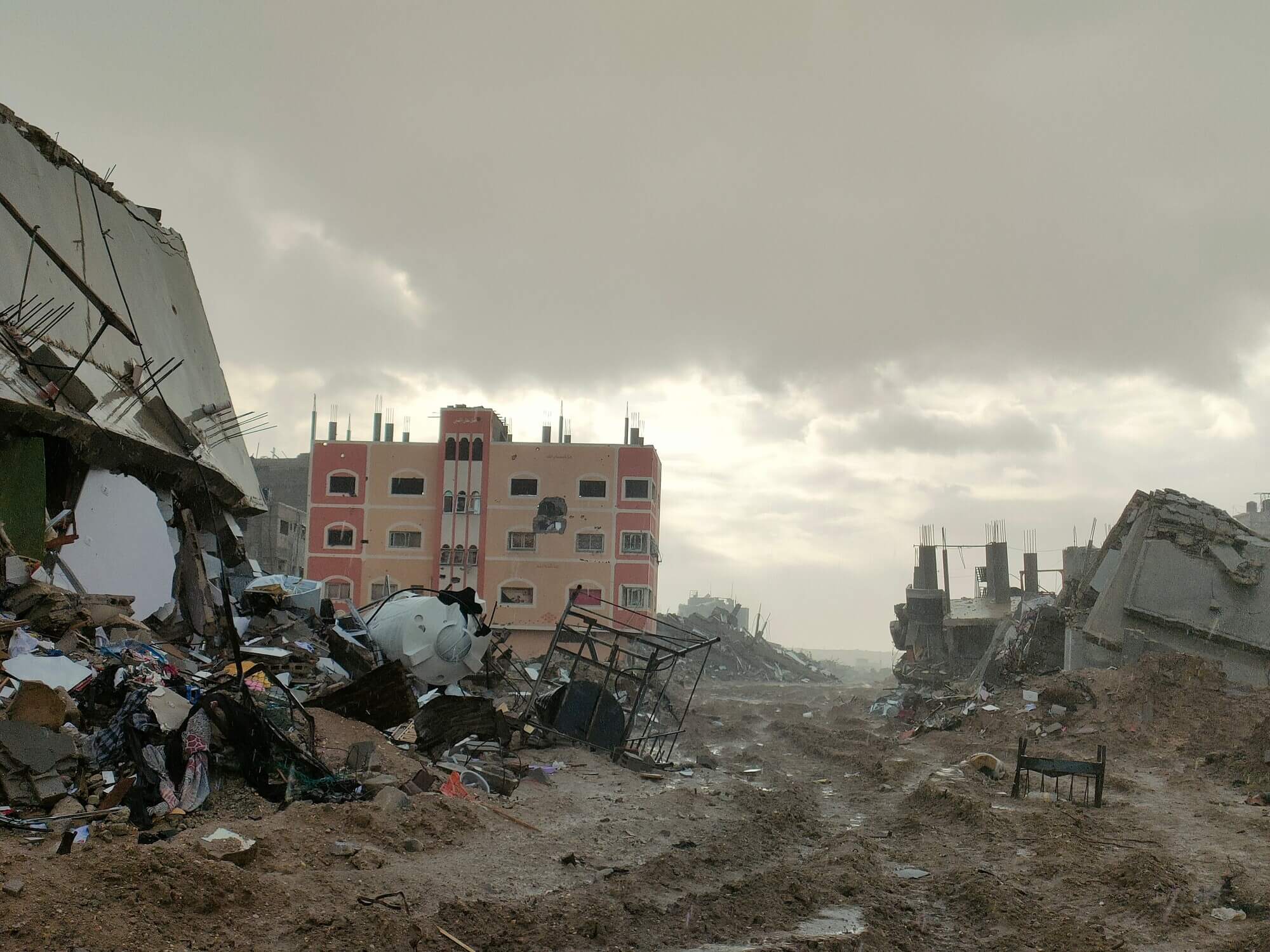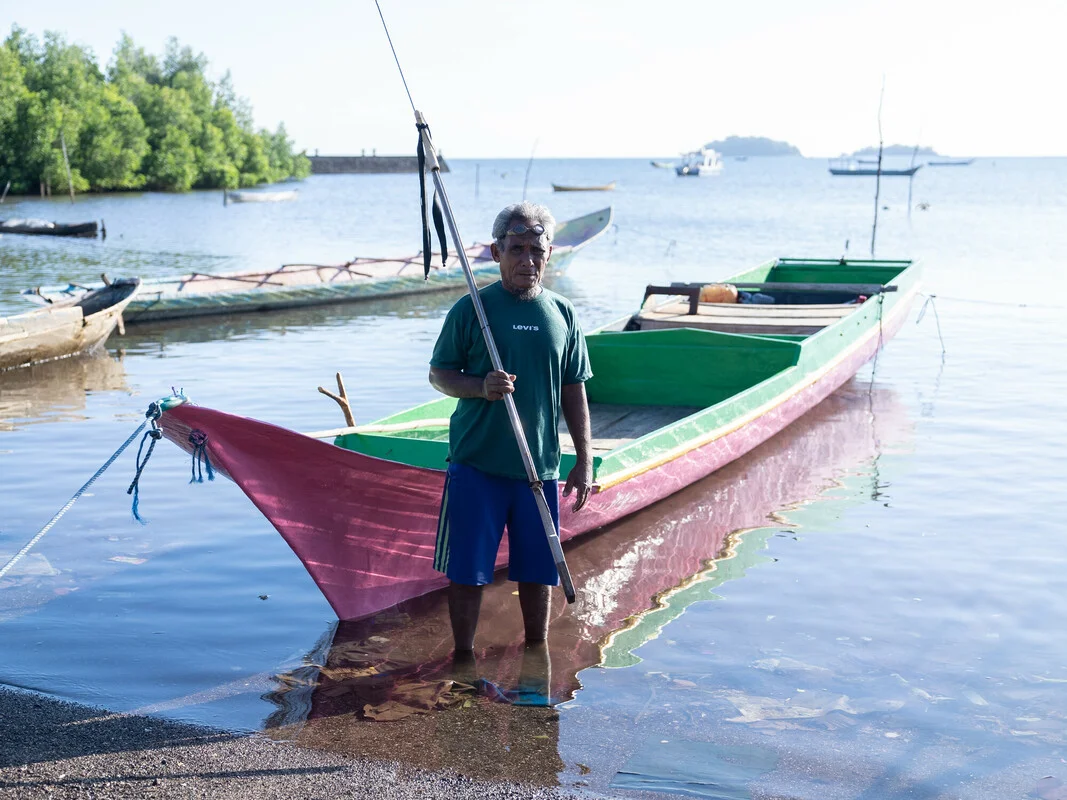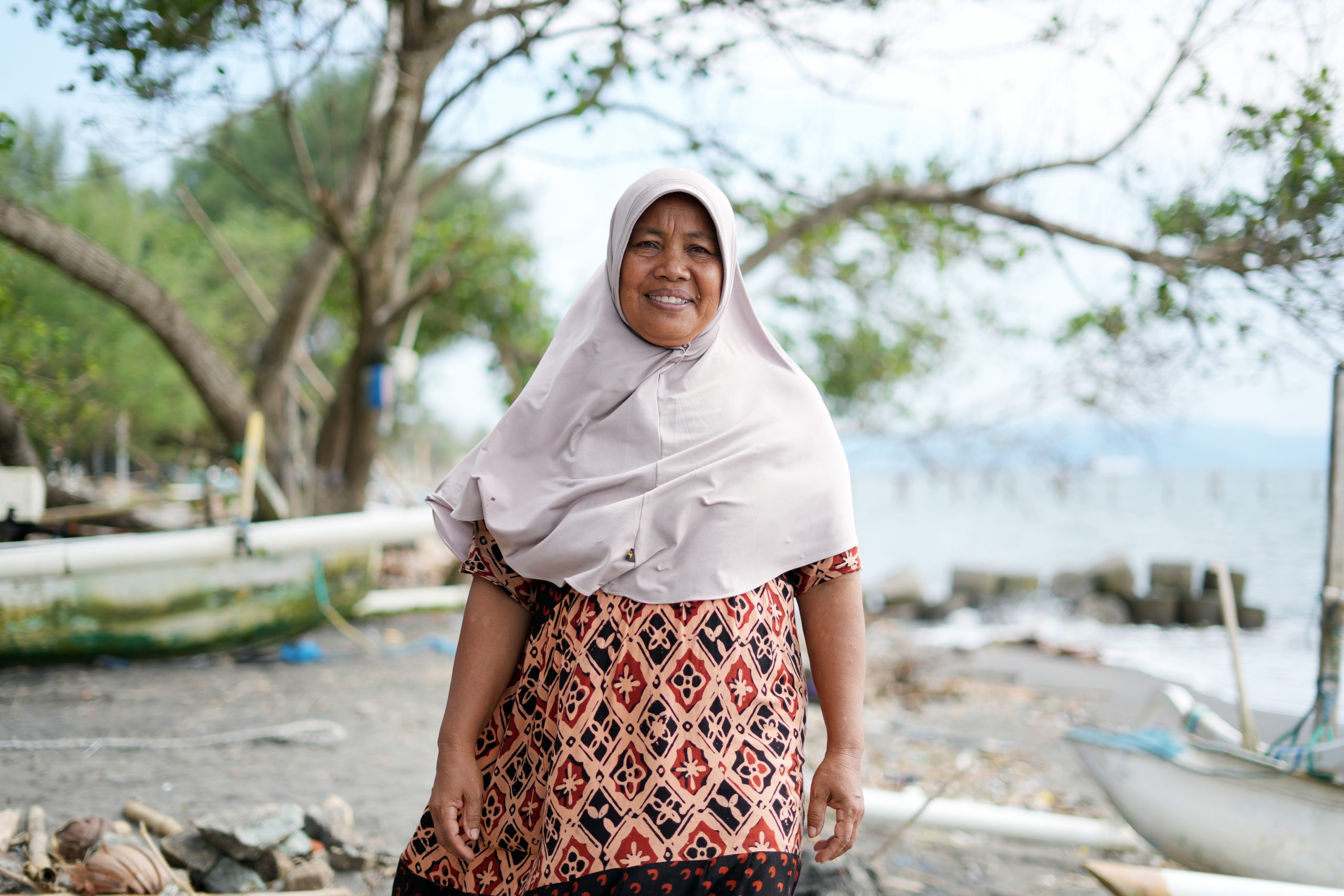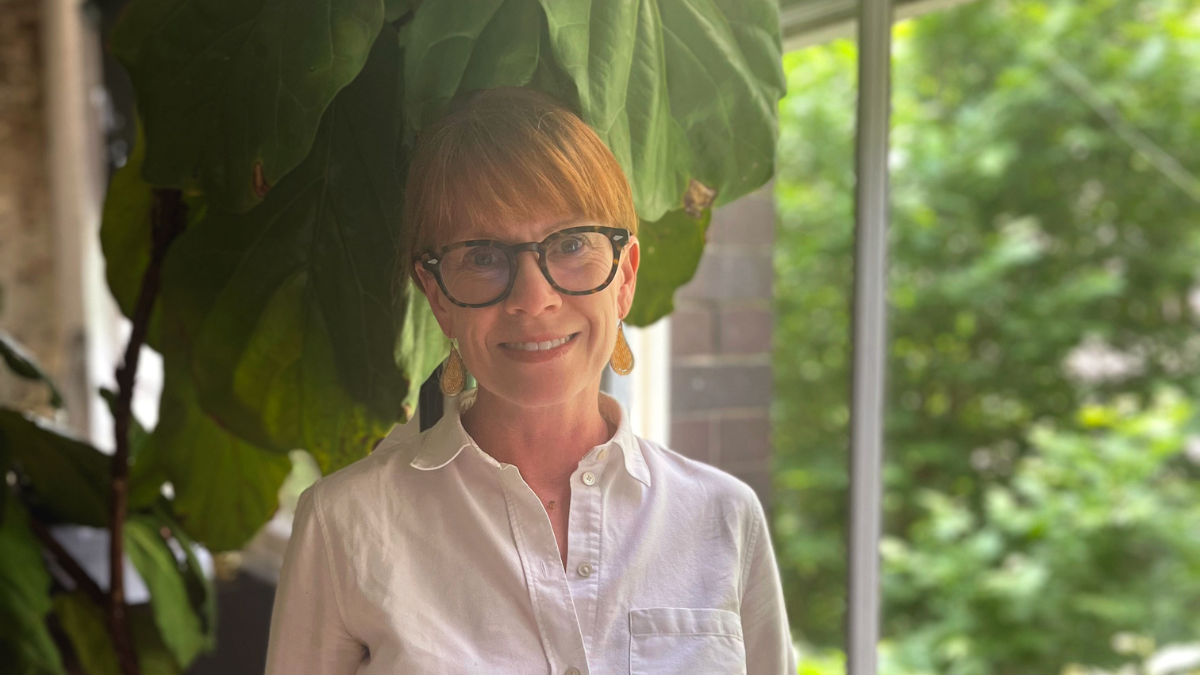It’s been six months since the Israeli Government’s comprehensive aid blockade of the Gaza Strip in early March. Palestinian civilians are being denied critical humanitarian aid.
Israel is committing genocide in Gaza. We say this based on extensive evidence from credible official legal analyses, UN experts and our own experience in bearing witness to the humanitarian catastrophe.
Gaza’s humanitarian situation is catastrophic, marked by starvation, repeated forced displacements, and the destruction of life-sustaining infrastructure and systems (including hospitals and water networks). Israel has intentionally created a chronic shortage of food, water, medicines and basic services like healthcare across Gaza.
Oxfam Australia’s latest update reports that disease is spreading quickly as families are forced to drink unsafe water and live in overcrowded shelters.
This article explains what’s happening in Gaza, the barriers to humanitarian access, how the Oxfam confederation and our partners are responding, and (importantly) what you can do to help.
What’s happening in Gaza: The current humanitarian situation (August 2025)
As of early August 2025, the UN’s Gaza Humanitarian Response Update indicates widespread displacement, extreme food insecurity and disrupted basic services across the Gaza Strip. The update notes that 90% of the Gazan population remains displaced and faces severely limited access to food, water, health care and protection services. Let’s look more closely.
Displacement
Around 1.9 million people (90% of the population) have been forcibly displaced , with repeated movements as hostilities and evacuation orders shift. Some people have been displaced 10 times or more. Many families are sheltering in overcrowded sites or damaged buildings with limited services.
Food insecurity
The Integrated Phase Classification has confirmed that famine is unfolding in Gaza City. A recent IPC snapshot reported widespread starvation, malnutrition, and disease are driving a rise in hunger-related deaths (with the entire population facing acute food insecurity). Conditions vary by area but remain severe.
Health and WASH
Damage to water and sanitation systems, overcrowding and limited medical supplies are driving sharp increases in water‑ and hygiene‑related disease. Disease like this can be catastrophic for a population already malnourished, dehydrated and living in overcrowded temporary shelters.
Oxfam Australia reports large percentage rises in acute watery diarrhoea, bloody diarrhoea and acute jaundice in 2025. Alongside this are sustained obstacles to moving the essential water, sanitation and hygiene (WASH) items into Gaza that may provide some relief.
Water access
Late last year, OCHA reported that most households faced severe water insecurity. The situation has only become more dire since then. Clean water is severely limited because many water networks and desalination plants are no longer functioning due to damage, fuel shortages and movement restrictions.This has contributed to the spread of deadly water-borne diseases.
Aid access and operations
The Israeli government continues to block aid from entering Gaza. Humanitarian access remains highly restricted and unpredictable.
Bushra Khalidi, Oxfam in the Occupied Palestinian Territory and Israel policy lead, said that “There is a grim and deliberate inevitability as to what Israel has created in Gaza. Each day that its siege continues and it denies aid, starvation becomes increasingly widespread and human deaths from entirely preventable diseases becomes an absolute certainty.”
The illegal disruption to international aid delivery at crossing points, insecure delivery routes and constraints on off‑loading and distribution all limit the assistance we (and others) can provide.
What this means for people in Gaza
Families frequently relocate to seek safety, clean water and basic healthcare. Local organisations, UN agencies and international NGOs continue to deliver assistance where access and security allow it, but current access and resupply levels remain vastly below identified needs.
Why people can’t get the help they need
1. Unpredictable and restricted ground access
Land crossings are the only scalable way to move life‑saving aid into Gaza. The air and maritime routes can only add to (never replace) deliveries by land.
In May, OCHA reported sustained denial, delays and movement restrictions on humanitarian movements, with high refusal rates for planned missions.
What would help: The restoration of principled, safe, unimpeded, and sustained humanitarian access across Gaza through a return to a UN-led coordination mechanism grounded in humanitarian principles and international law.
2. Fuel scarcity
Fuel is essential for hospitals, water systems, food distribution, logistics and telecommunications. Prolonged restrictions on fuel entry can have widespread, deadly consequences.
What would help: regular, sufficient fuel deliveries for humanitarian operations and civilian infrastructure.
3. Restrictions on critical items and repairs
Aid agencies are limited as to how much essential equipment and spare parts they can bring in (if any) – all of which are needed to restore water, sanitation and hygiene (WASH) services.
What would help: authorisation for urgently needed WASH/health items and repair materials, with clear guidance on approvals.
4. Insecurity and damaged infrastructure
Active conflict, damaged roads and debris impede truck movements and delay distributions. Humanitarian operations are frequently curtailed by access denials and security constraints.
What would help: sustained adherence by all parties to international humanitarian law, safe movement for aid workers, and clearance of main logistics routes.
5. Communications and coordination gaps
Limited connectivity and telecommunications outages hamper inter‑agency coordination, convoy tracking and needs assessments.
What would help: reliable power and telecoms for humanitarian operations, and streamlined, transparent coordination mechanisms.
6. Underfunding
The UN’s 2025 humanitarian plans for the Occupied Palestinian Territory have been significantly underfunded relative to needs, constraining scale‑up.
What would help: timely, flexible funding that matches the scale and duration of needs so agencies can procure, staff and deliver at pace.
Oxfam’s assessment
Israeli authorities continue to block or delay aid, which has caused famine. The risk of disease is now rising where water and sanitation systems cannot be restored.
These barriers are solvable. The priorities are:
- predictable, protected land access
- fuel and critical supplies at scale
- functioning crossings
- resources and permissions to repair essential services and reach people wherever they are
Donate to Oxfam’s Gaza Crisis Appeal to help us advocate for a permanent ceasefire and stand for peace.
Oxfam’s response in Gaza
The Oxfam confederation is working with Palestinian partners to deliver WASH support, essential supplies and cash assistance in the face of huge obstacles, while advocating for safe, sustained humanitarian access. What does that look like?
Working on water, sanitation and disease prevention
Together with local organisations, Oxfam and partners install small-scale desalination units, place large water tanks and tap‑stands, repair damaged water lines where possible, and distribute hygiene kits and dignity items. These steps reduce water‑borne disease risks in overcrowded shelters and displacement sites.
Delivering essential supplies and emergency support
Oxfam has pre‑positioned substantial stocks for rapid distribution when access allows – over 110,000 items in one warehouse alone, including water bladders and tanks, hygiene and water‑testing kits, food parcels, soap, nappies, pipes and latrine slabs. Cash assistance is also used when conditions permit.
Supporting health and protection services
In partnership with Palestinian groups, Oxfam helps train community first responders in psychological first aid, as well as support around safe pregnancy and birth.
Advocacy for access and civilian protection
Alongside operational work, Oxfam advocates for an immediate and sustained ceasefire, the opening of crossings, predictable fuel supplies for WASH and health facilities, and unhindered movement for aid workers and convoys so that assistance can reach people at scale.
What needs to change
It’s not just about what’s happening in Gaza, but what needs to change. To protect civilians and enable an effective humanitarian response in Gaza, the Oxfam confederation is calling for:
- A permanent ceasefire so people can be safe, aid can be delivered at scale, and damaged services can be restored.
- Full, safe and predictable humanitarian access via all possible routes and crossings, with adequate fuel and relief supplies allowed in daily and in sufficient quantities to meet needs.
- Protection of civilians and aid workers, and respect for international humanitarian law, including the protection of medical facilities, water and sanitation systems, and humanitarian personnel.
- Removal of impediments on UN agencies and humanitarian organisations, so assistance can be delivered at scale and in line with humanitarian principles.
- Adequate, flexible funding for the humanitarian response and for early recovery (with support channelled to agencies operating on the ground and to local partners).
How you can help
The crisis in Gaza is urgent, but there are solutions. Communities need clean water, sanitation, healthcare and food now. They also need the barriers to aid lifted so these essentials can keep flowing.
By donating to Oxfam’s Gaza Crisis Appeal, you help fund both immediate relief and long-term advocacy for sustained humanitarian access. That means hygiene kits, water systems and emergency supplies on the ground, and pressure on governments to uphold international law and open safe humanitarian corridors.
Every contribution strengthens local partnerships and ensures assistance reaches families who are fighting to survive with dignity and justice.
Explore other ways your support can make a difference, or read our Gaza crisis updates for regular updates on humanitarian needs and the Oxfam confederation’s response.



